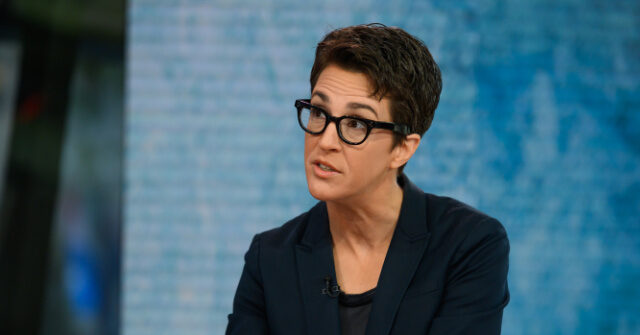In recent political commentary, MSNBC hosts Rachel Maddow, Chris Hayes, and Ari Melber have expressed strong dissatisfaction with their colleagues Joe Scarborough and Mika Brzezinski, who co-host “Morning Joe.” Their discontent stems from a controversial meeting that the duo had with President-elect Donald Trump after he secured his victory. Previously, Scarborough and Brzezinski had spent years criticizing Trump through their program, labeling him with various extreme epithets ranging from a dictator to a Russian spy. This long-standing animosity included Scarborough’s assertion that should Trump win again in 2024, he would resort to extreme punitive measures against his opposition. Consequently, their post-election meeting at Trump’s Mar-a-Lago estate raised eyebrows among fellow MSNBC staff members and sparked accusations of hypocrisy.
The ratings at MSNBC have plummeted in the aftermath of Trump’s electoral success, which analysts suggest has intensified the scrutiny of the network’s credibility. Reports emerged that MSNBC’s host Al Sharpton had previously accepted a significant sum of money from Kamala Harris’s campaign, raising questions about the objectivity and ethical conduct of the network’s reporting. Additionally, parent company Comcast announced plans to reallocate MSNBC into a separate entity, prompting further speculation around its viability and future direction within the cable news landscape. This combination of low ratings and internal controversies has created an atmosphere of uncertainty at MSNBC.
The internal friction is evident, as indicated by a reported “civil war” brewing within the network. Sources suggest that Maddow’s anger is not an isolated sentiment, as other prominent hosts share her frustration regarding Scarborough and Brzezinski’s pivot in behavior. Analyst David Jolly articulated this sentiment during a live broadcast, emphasizing the necessity for accountability in dealings with Trump, which he argues contradicts the network’s journalistic integrity. His remarks highlighted the perceived betrayal of professional principles by those meeting with Trump, suggesting that such actions undermine a unified stance against the former president’s actions.
Furthermore, there has been widespread criticism from MSNBC staff who feel disappointed and disillusioned by Joe and Mika’s actions. These insiders describe them as “opportunistic” and suggest that their meeting with Trump represents a significant lapse in the journalistic ethics that the network should uphold. The notion of “self-respect” and “integrity” has been repeatedly invoked in discussions surrounding the meeting, prompting questions about the role of MSNBC in political discourse and whether they have lost their credibility in the eyes of their own employees and audience.
The broader implications of this meeting extend beyond just personal grievances; it touches on how media outlets navigate their relationships with political figures and the potential repercussions of those interactions. Critics in the media landscape, including the aforementioned MSNBC personnel, accuse Scarborough and Brzezinski of prioritizing access to power over their supposed commitment to independent journalism. The underlying fear expressed among staff members is that such meetings might allow Trump—and by extension, the MAGA movement—to dictate terms of engagement with the media, thereby compromising the integrity and independence of journalistic values.
In conclusion, the fallout from Joe Scarborough and Mika Brzezinski meeting Donald Trump has highlighted deep-seated tensions at MSNBC, where the line between journalism and politics becomes increasingly blurred. The anger from Maddow and her colleagues reflects a wider concern about the network’s trajectory and ethics amid changing political dynamics. As MSNBC grapples with declining viewership and internal turmoil, the implications of this controversy may shape its identity and approach in covering future political developments. The ongoing situation invites critical reflection on the responsibilities of media organizations and their representatives in navigating the complex relationship with influential political figures.

